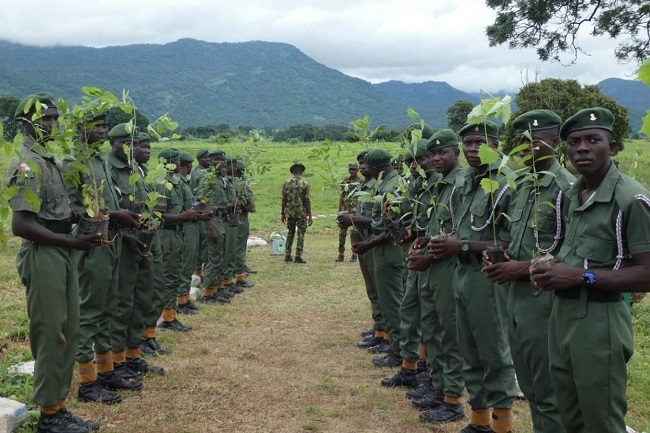Lagos State is characterised with the lowland tropical and mangrove forests, in addition to a landscape that is unlocked by a massive stretch of the Pacific Ocean extending to about 150 km. The unlocked landscape is reckoned to have contributed to the industrialisation and development recorded in the state. Thus, the increase in human and material inflow into the state, howbeit, at the expense of the natural environment.

The natural environment of the state represents the totality of all available non-artificial features, including the forests and wetlands that surrounds us. However, the advent of the millennia era had set the state on the path of rapid economic growth and prosperity, with the forestlands and wetlands at the receiving end. The unique green spaces are disproportionately losing their holds to urban sprawling, infrastructural development and human civilisation.
The helpful services from forest environment to humankind are irreplaceable, and their relevance cannot be concealed with arguments in support of economic development. The quality of human existence is always closely linked to the forest environment. Health care, hospitality and household energy budgets would have been more expensive without the forests and trees. Although few people acknowledge the authenticity of these largesses from forest ecosystems, it cannot be denied that trees abate flooding incidences, improve human vision and the quality of air drawn into the respiratory tracts. Monetising these forest services could surpass the total worth of most businesses seeking to replace forestlands in Lagos State.
As we bask in the euphoria of the global event in support of the forests, it is high time to stop seeing the trees as a nuisance or plague that businesses and institutions need to eradicate for profit maximisation. Eco-friendly profit is only achievable if businesses co-exist with nature. Current studies reveal that within the space of eight years (2014-2022), Lagos State had lost about 17.87% or 34,168.68 hectares of the green spaces to other non-forest land uses.
At this rate of forest clearance, the core forest in the state will be entirely displaced over the next 24 years, if the status quo of depixelation is not abbreviated. The implication of this statistics on human living standards, lifeforms and the aquatic bodies is better imagined than experienced. Given the current model of economic operations in the state, most businesses are tipping the balance of environmental injustice to earn black profits.
Within the same period, 2014 – 2022, about 8,347.86 hectares of forestland were added to the landscape of State through natural re-growths of undisturbed parcels and other numerous tree planting efforts from both the public and private sectors. This is plausible, nonetheless. However, despite the glimpse of hope inspired with the figures for forest recovery, forest clearance is still, at least, four times the rate of forest accretion in Lagos State.
Hence, there could, perhaps be four times more actors acting in defiance to the forest conservation principles in Lagos State. Following from the above, state-level addendums to investment plans and environmental policies are essential towards balancing the scale in favour of green infrastructural development in the midst of consolidated drive for economic expansion and prosperity.
The actions of real estate developers, owners of business conglomerates and other lords of deforestation should be mutually arbitrated by appropriate policies to entrench healthy interactions with the environment and also expand the frontiers for sustainable urban forestry development in the state. The present lords of deforestation and agents of forest conversion can be transformed into future champions of the environment if amicably engaged.
As stakeholders commemorate this year’s International Day of Forests, actors all over should strive to make their cities and human settlements inclusive, safe, resilient and sustainable. It is within the realms of future possibilities to have politicians use urban forestry development as a political slogan to garner more willful public supports and votes in the elections ahead. I should deliberately play lead roles in such campaigns. Let us keep the forests and trees for a healthy, better and sustainable Lagos!
By Stephen Aina, Nigerian Conservation Foundation (NCF), Lagos
